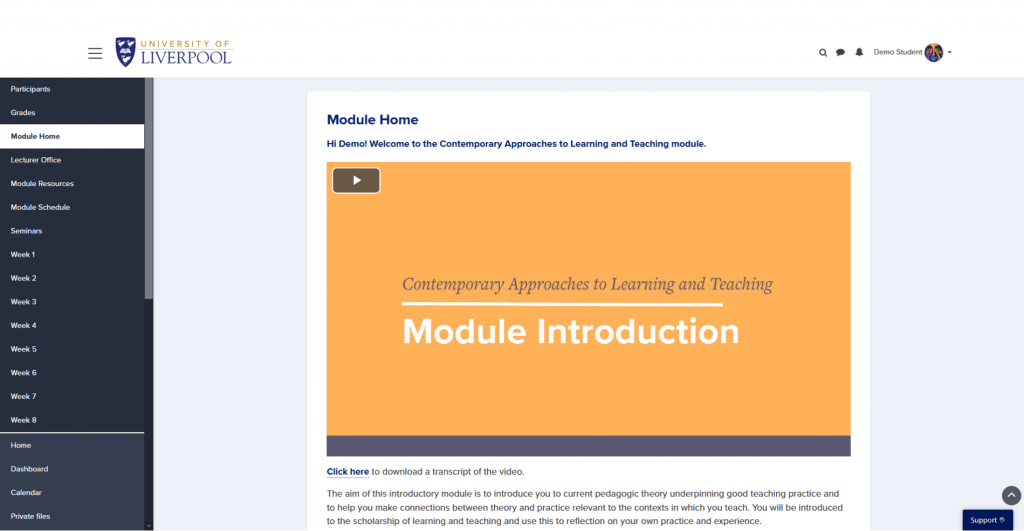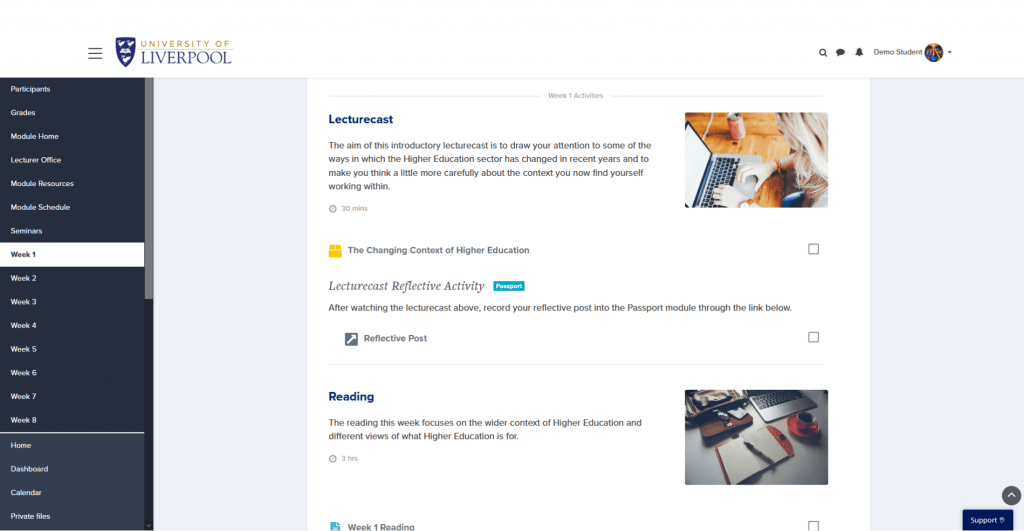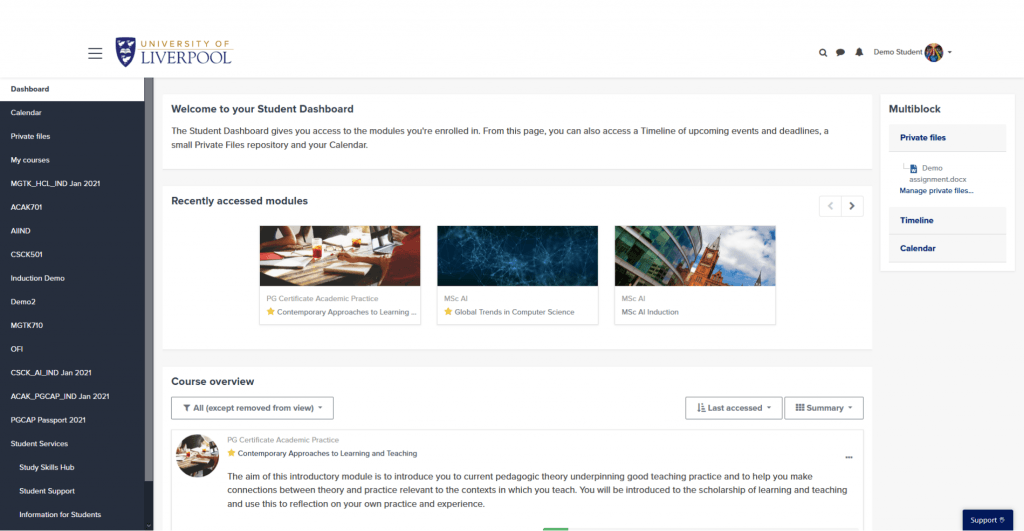Over the years online learning has been met with many different perceptions, or myths. Some may say that online education does not share the same rigour as traditional classroom-based learning. However, with the increase of online degrees, online education is becoming more mainstream as today’s students value flexibility to balance commitments as well as the opportunity to study from anywhere in the world.
As a provider of online postgraduate programmes, we want to help you discover the benefits and opportunities of studying online with Liverpool. Therefore, in this post we will delve into five common myths associated with online education.
Myth 1: It’s not as rigorous as campus-based study
Our online postgraduate programmes are carefully designed and taught with the same rigour as our on-campus programmes. While studying online, part-time allows you a greater flexibility to complete your master’s degree around your other commitments, there is no difference in the level of qualification, or the ability and aptitude you need to earn it. Therefore, your award will state the name of the programme that you have completed without the reference to the mode of study, reflecting the equality of the online postgraduate degree at the University of Liverpool.
Throughout your chosen online master’s programme you will be expected to engage on a regular basis with the weekly module content and submit various tasks by the deadline. As the structure of our online courses has the same level of commitment as on-campus programmes, we expect our students to allocate 15-20 hours of part-time study per week to ensure you keep up with the reading material, written assignments and other activities such as discussion forums.
We also understand that many students who choose to study online are looking for a programme that will support their professional development. For this purpose, our online postgraduate courses gravitate around real-world scenarios and case studies, including sessions led by industry experts.
Myth 2: You’ll have to teach yourself the course material
At the University of Liverpool our online postgraduate programmes are delivered via the Virtual Learning Environment (VLE) allowing for interactive and engaging module content rather than a passive learning experience. The weekly module resources are provided in different formats including lecturecasts, reading lists and discussion forums.
In contrast to a standard pre-recorded lecture, a lecturecast encompasses a range of multimedia content that is broken down into smaller sections consisting of videos, tasks, reading pieces and quizzes, just to name a few. Lecturecasts are supported by extension activities, such as group debates or blogs, to allow you to engage thoughtfully and critically with the content.
As a student, you can navigate through the VLE to access your course materials at any time. The platform is designed to be responsive across tablet and mobile devices, allowing you to study on-the-go from wherever you have an internet connection. The online mode of study gives you the structure and resources required for the successful completion of your chosen online master’s degree.
Learn more about how the module of study is structured by reading our recent blog here.
Myth 3: You’ll have no interaction with peers and tutors
Due to the nature of online learning, you may be wondering what kind of engagement you may expect to have with fellow students, tutors and student support services.
All our online postgraduate programmes are designed to facilitate interaction with fellow students and develop an online community with your peers. Throughout your studies you will have the opportunity to engage with your lecturers and other students to discuss module content such as case studies.
In terms of peer-to-peer interactions, you will be able to participate in group projects, tutorials, and virtual social events. This will allow you to delve deep into the topics you study and build your international awareness by conversing with students from various parts of the world.
Myth 4: Online courses lack accreditation
We are proud to say that many of our online postgraduate programmes and department accreditations are gold standards in higher education, which is an ultimate reflection of the world-renowned research and teaching that the University of Liverpool provides.
The University of Liverpool Management School, for example, holds triple accreditation (AACSB, AMBA and EQUIS) which puts it amongst an elite group of business schools. Choosing to study any of our online master’s programmes means you can have confidence your qualification is meeting industry standards.
Learn more by visiting our accreditation page.
Myth 5: There isn’t enough support for online students
At the University of Liverpool, we are committed to supporting our online postgraduate students by providing access to specialist help, such as advice from our Student Support Team, Study Skills Team and Student Welfare Team, as well as resources such as career development, VLE technical support and eLibrary assistance.
Our students can get in touch with our advisors throughout their studies, whenever they require study guidance, wellbeing advice, disability support or help navigating the VLE. Additionally, throughout your modules you are encouraged to contact your module tutor if you have any academic questions. Your tutor contact information, including their office hours, is always available under the module home tab when you log in to your VLE account.



